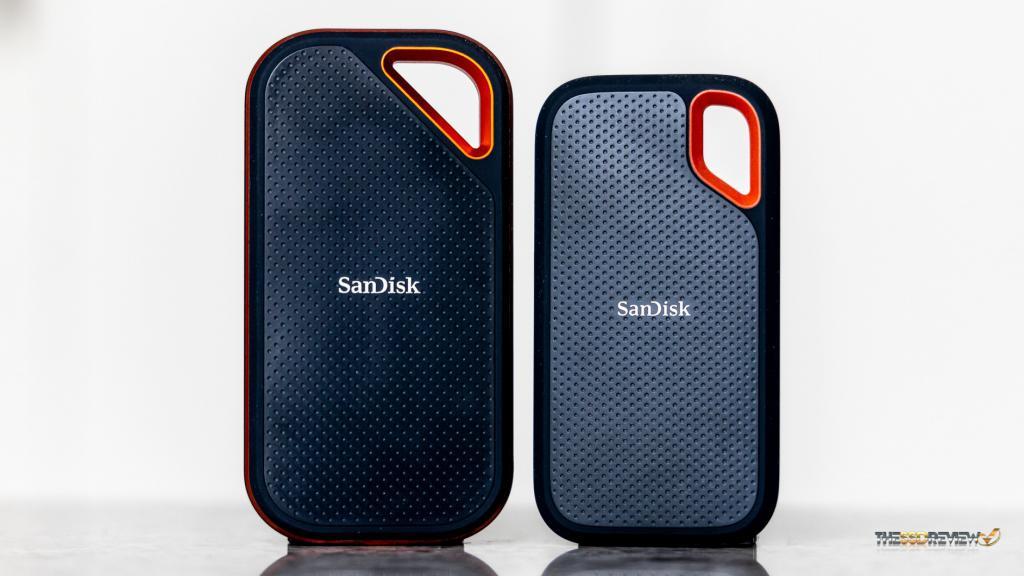SanDisk has recently upgraded their line of Extreme Portable SSDs and they encompass, not only a higher volume but also, their transfer speeds are faster. Our review today examines the Extreme Portable SSD which is a USB 3.2 (10Gbps) SSD. Within a few days. we will be reviewing the SanDisk Extreme Pro SSD which is the first portable SSD that we know of to make use of the newest USB 3.2 Gen 2×2 (20Gbps). This is a photo of both, the Extreme Pro being just a bit larger.
In saying that the Extreme is 10Gbps, vice 20Gbps of the Extreme Pro, we are speaking to the highest data transfer speed, the Extreme being 1050 MB/s where the Extreme Pro is 2GB/s. Both portable SSDs have a smooth ABS hard rubber surface with a soft silicon base, and both use a Type-C connector which will allow the user to achieve performance of 1050MB/s read and write on a system that is compatible with USB 3.2 Gen 2.
The SanDisk Extreme Portable SSD is available in capacities of 500GB, 1TB and 2TB, is compatible with both PC and Mac systems and comes with a 5-year warranty. It measures 3.96″ x 2.06″ x 0.35″, is capable of USB 3.2 Gen 2 (10Gbps) 1050MB/s speeds, and has 256-bit AES hardware encryption with password protection.
Included in the SanDisk Extreme Portable SSD packaging is the SSD itself, a Type-C to Type-C cable, Type-C to Type-A adapter and warranty information. It has an IP55 rating which means that it can withstand rain, splashes, spills and dust, along with up to a 2m drop rating.
The SanDisk Extreme Portable SSD is built as a 4-part platform to include the silicon base, a PCB containing the Type-C USB and with USB bridge, the WD Blue SN550 NVMe M.2 SSD and the smooth ABS lid. MSRP pricing is listed at $119, $199, and $354, however, we found all three capacities at least $10 cheaper at Amazon at the time of this report.
Examining the Crystal DiskInfo result, we can validate that the SanDisk Extreme Portable SSD is based on the Western Digital Blue SN550 NVMe SSD and is using the newest NVMe 1.4 protocol.
ATTO Disk Benchmark is perhaps one of the oldest benchmarks going and is definitely the main staple for manufacturer performance specifications. ATTO uses RAW or compressible data and, for our benchmarks, we use a set length of 256mb and test both the read and write performance of various transfer sizes ranging from 0.5 to 8192kb. Manufacturers prefer this method of testing as it deals with raw (compressible) data rather than random (includes incompressible data) which, although more realistic, results in lower performance results.
Our initial ATTO Benchmark is very encouraging as the SanDisk Extreme Portable SSD meets listed performance specifications and we see a gradual increase in speed with increase of sample size transferred.
 The SSD Review The Worlds Dedicated SSD Education and Review Resource |
The SSD Review The Worlds Dedicated SSD Education and Review Resource | 

